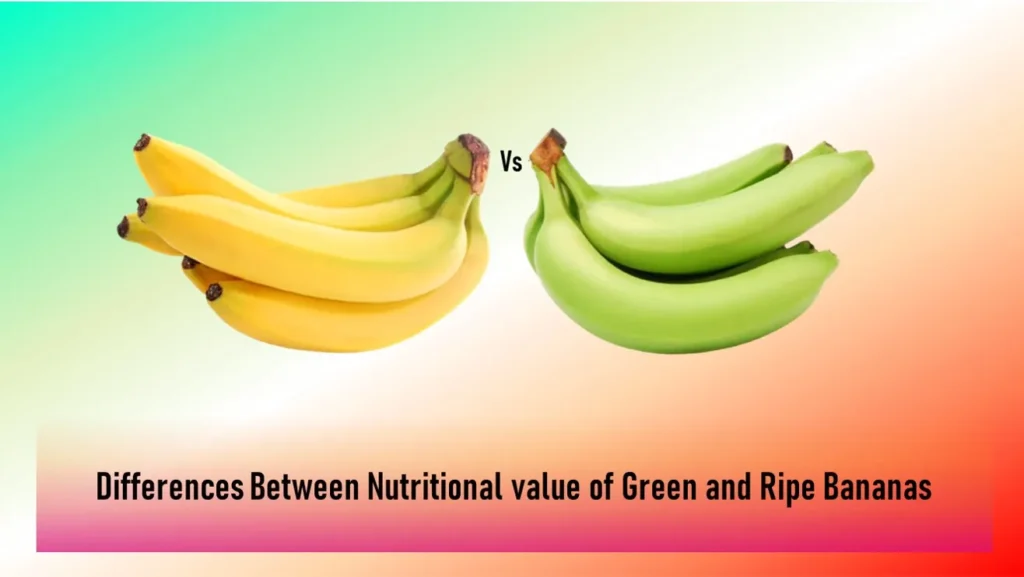This article written on Differences Between Nutritional value of Green and Ripe Bananas. Bananas are a versatile and nutritious fruit enjoyed worldwide for their convenience, sweetness, and health benefits.
However, the stage of ripeness at which bananas are consumed can significantly impact their nutritional profile and potential health benefits. In this blog post, we delve into the scientific differences between green and ripe bananas, exploring how the ripening process affects their vitamins, minerals, and overall health benefits.
Green vs Ripe Bananas – A Nutritional value of Green and Ripe Bananas
When it comes to bananas, the primary difference between green and ripe lies in their carbohydrate composition. Green bananas contain higher levels of resistant starch, a type of carbohydrate that resists digestion in the small intestine and functions as a prebiotic fiber. As bananas ripen, these resistant starches gradually convert into simple sugars, such as glucose, fructose, and sucrose. This transformation accounts for the increase in sweetness observed in ripe bananas.
In terms of vitamins and minerals, both green and ripe bananas offer a range of essential nutrients, but the levels may vary depending on ripeness. Green bananas tend to contain higher levels of certain nutrients, such as vitamin C and resistant starch, while ripe bananas are richer in antioxidants and easier to digest sugars.
Vitamins and Health Benefits
Green bananas are an excellent source of vitamin C, a powerful antioxidant that supports immune function, collagen production, and iron absorption. Additionally, the resistant starch content in green bananas promotes digestive health by serving as a substrate for beneficial gut bacteria, thereby supporting gut microbiome diversity and overall gut health.
On the other hand, ripe bananas are higher in antioxidants, such as dopamine and catechins, which have been linked to various health benefits, including improved heart health, reduced inflammation, and enhanced mood. Ripe bananas also provide a quick source of energy due to their higher sugar content, making them an ideal snack for refueling during physical activity or between meals.
In conclusion, the ripening process significantly influences the nutritional composition and health benefits of bananas. While green bananas are rich in vitamin C and resistant starch, ripe bananas boast higher levels of antioxidants and easily digestible sugars. Incorporating both green and ripe bananas into your diet can provide a range of nutrients and health benefits, supporting overall well-being and digestive health. So, whether you prefer them green or ripe, bananas are a delicious and nutritious addition to any balanced diet.
Also Read:
Scientific Reason – Why Ripe Bananas Turn Black and its preventions
